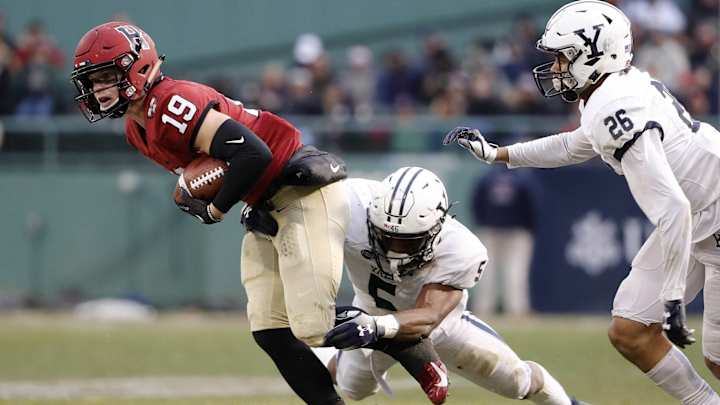My Two Cents: Don't Make Too Much of Ivy League Canceling Football Season

BLOOMINGTON, Ind. — We are just 57 days out from what is supposed to be the start of Indiana's football season, a Friday game at Wisconsin on Sept. 4. But every day, we keep getting more and more bad news that puts the start of the season in jeopardy.
And these are not just body punches, they are wicked Mike Tyson-like smacks to the jaw. (For you youngsters, Mike Tyson is an actor from "The Hangover.'')
A big one came Wednesday, when the Ivy League announced that there would be no fall sports this year, including football. The entire schedule, just like that, wiped right off the calendar.
Is that a precedent-setter?
Probably not, not when it comes to Indiana, to the Big Ten, to all the major football conferences. And there's one simple reason for that — money.
It's relatively easy for the Ivys to make this kind of decision. These wealthy academic institutions don't NEED football like the SEC and the ACC and the Big Ten do. In truth, the eight Ivy League schools lose money on college football every year, and it's nothing more than a Saturday afternoon diversion for a few thousands fans on their small yet swanky campuses.
But in the Power 5, college football is a massive billion-dollar industry, and to cancel a season and lose all that revenue, it would be a death-knell to college sports as we know it. We're already seeing massive budget cuts across the country, and just a day ago, Stanford whacked 11 sports from his roster, effective at the end of the season.
Connecting the dots on the college football landscape isn't always an easy exercise. And let's be honest, you cannot draw a straight line between the dot that is the Ivy League and the other big boys in the college game.
The Big Ten and the others will do everything in their power to play football this season, simply because there is so much money involved. They can do what the Ivy League can't — play games without fans and still make a ton of money because of their television contracts — so that will happen if it's at all possible.
There are a variety of scenarios, of course. A shorter season that starts later or includes more bye weeks is certainly on the table, because some football would be better than none. No fans, or much fewer fans, is a very likely scenario, those nothing has been etched in stone yet. Then there is the real stretch, moving the entire season to the spring to give the world more time to get this COVID-19 virus under control.
Frankly, we should be more concerned about what's going on right next door at Ohio State than we should about the Ivy League move. Ohio State's athletic department suspended voluntary workouts on Wednesday for at least one week because of some positive COVID-19 test results. The school did not report the numbers of positives, but it was substantial enough to shut things down, and one site was reporting that several football players tested positive.
What if it takes longer than a week for the Buckeyes to return to workouts? They we're pushing up close to the late July date when team workouts, at least on a limited basis, can begin. That threatens the start of a season far more.
At Indiana, the school has been quiet lately about test results. The first wave of players started returning in mid-June and were immediately tested before they could even come back on campus. Athletes, coaches and staff members — anyone who would need to be around the facilities — were tested and there was ZERO positive results in the 187 tests, according to a release from the school on June 23.
That was 17 days ago, and no new numbers have been released. A second wave of football players are back on campus now, as are men's and women's basketball players. Women's soccer and volleyball players returned this week, and men's soccer and field hockey players can return next week after testing.
We'd certainly love to know more about Indiana's testing, of course, and not because of the games, but because of the players and their health.
The clock is ticking on what's going to happen this fall. What goes on in the Ivy League is one thing, but what happens close to home matters even more.

Tom Brew has been the publisher of “Indiana Hoosiers on SI’’ since 2019. He has worked at some of America's finest newspapers as an award-winning reporter and editor for more than four decades, including the Tampa Bay (Fla.) Times, Indianapolis Star and South Florida Sun-Sentinel. He operates seven sites on the “On SI’’ network. Follow Tom on Twitter @tombrewsports.